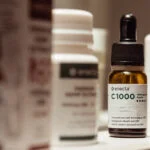Connection Between Alcohol Use & Depression
It’s normal to feel down from time to time. But when you feel persistently down, sad or lonely, this may be a sign that you’re suffering from depression.
Depression is a mental health condition that involves persistent feelings of sadness, dread, tiredness, and hopelessness.
For those struggling with the symptoms of depression, alcohol might sometimes seem like a good way to suppress and ease these symptoms.
However, the overuse of alcohol alters the chemicals in the brain that are vital for your mental health.
So while alcohol might make us feel relaxed after a drink, the long-term effects that alcohol has on the brain and your mental health have a huge impact. Drinking excessively may even lead to prolonged feelings of depression and anxiety.
Symptoms of Depression
Depression is known as a mood disorder, which means it can cause feelings of sadness, anger, loss, and emptiness. According to APA, it affects about one in every 15 people [1].
A person can be officially diagnosed with depression if they exhibit a number of the following symptoms for two weeks [1].
- Sadness
- Loss of interest
- Erratic sleep patterns
- Fatigue
- Feelings of worthlessness
- Issues concentrating
- Suicidal thoughts
- Guilt
- Loss of libido
- Constipation
- Finding it hard to make decisions
- Inability to find joy
Symptoms of Alcohol Abuse & AUD
Wanting a drink every now and then when you’re stressed or celebrating doesn’t necessarily mean you have a problem or are dependent on alcohol. Alcohol dependence and abuse are when you feel you need a drink every time a problem occurs.
Studies have shown that up to one-third of our population is categorised as having an alcohol use disorder (AUD) at some point in their lifetime [2]. The World Health Organisation [3] stated that alcohol is directly responsible for 3.3. Million deaths per year, worldwide.
A study carried out by WHO also stated that Alcohol Abuse (AUD) contributes to the causation of more than 200 conditions into psychiatric disorders, neurological, gastrointestinal, and cardiovascular issues [3].
According to the NHS [4] the following are symptoms of alcohol abuse:
- Hand tremors
- Excessive sweating
- Seeing things that are not real (visual hallucinations)
- Depression
- Anxiety
- Difficulty sleeping (insomnia)
The Connection between Depression & Alcohol
There are two possible explanations for the relationship between alcohol abuse and depression. Some believe that both depression and alcohol abuse have common genetic and environmental factors that together increase the risk of both disorders.
Others believe that the two disorders have a causal effect on each other, with the presence of one disorder increasing the risk and chance of having the other [5].
Depression Leading to Alcohol Abuse
When suffering from depression, alcohol may seem like an easy way to ease the pain and escape reality. The sedative effects of alcohol can often be appealing to someone suffering from depression and acts as a distraction from the continuing feelings of sadness.
Unfortunately, it is common for people to excessively use alcohol to self-medicate depression. Although it may temporarily relieve some of the symptoms of depression, it ultimately worsens your physical and emotional well-being.
Alcohol Abuse Leading to Depression
As discussed above, whilst depression can put a person at greater risk to develop an alcohol problem, alcohol abuse leading to depression is more common [6].
It is common knowledge that alcohol abuse has detrimental consequences on most aspects of life. Alcohol abuse often leads to a series of financial and career issues. As a consequence of this, relationships start to break down, leading to feelings of sadness, loneliness, and depression.
In turn, this then leads to a perpetuating and damaging cycle from the other angle, abusing alcohol in order to self-medicate the symptoms of depression now felt.
An individual can easily get caught in a struggle and cycle, going back and forth between abusing alcohol and then using alcohol to try to ease the resulting depression.
It can be extremely challenging to break this cycle and professional help is often needed, which is why it is important to seek professional help from a trained and qualified doctor or therapist.
Alcohol, the Brain and Depression
Struggling to walk, blurred vision, slurring your words, hazy memory: it is well-known that alcohol consumption affects the brain. It can sometimes only take one or two drinks for these symptoms to start to show. Equally, these symptoms can quickly disappear when you stop drinking.
Fluctuating Serotonin and Dopamine Levels
However, excessive alcohol consumption has more detrimental and long-lasting effects on the brain and can change the brain’s neurotransmitters. When consuming alcohol, chemicals in the brain such as serotonin and dopamine fluctuate.
Serotonin maintains and balances mood, whereas dopamine is linked to the brain’s reward system. When either of these chemicals fluctuates rapidly, it triggers feelings of depression among a whole host of other mental and health problems.
There are a number of factors that influence how and to what extent alcohol takes effect on the brain [7]. These include:
- Quantity
- How often
- Age
- Gender
- Genetic background
- Whether he or she is at risk as a result of prenatal alcohol exposure
- General health status
Shrinkage of the Hippocampus
Excessive consumption of alcohol over a prolonged period of time can also result in the shrinkage of the brain’s hippocampus [8].
In a study by Oxford University, researchers tracked participant’s drinking partners over 30 years. Participants who drank 4 or more drinks a day were almost 6 times more at risk of their hippocampus shrinking compared to those who didn’t drink as excessively [8].
The hippocampus is mainly responsible for learning and memory. So, damaging the hippocampus by excessive drinking may permanently or temporarily hinder your brain’s ability to learn a new skill or recall long and short-term information.
Alcohol and Depression: What to Do
Depression and alcohol abuse are both serious problems that should not be ignored. If you think you’re suffering from depression or substance abuse of any kind then you should talk to a doctor or psychologist as soon as possible.
There is a wide range of medications, treatments, and choices when it comes to treating depression and alcohol abuse. For example, there are specific drugs that lower the craving for alcohol and lessen the need to drink excessively.
If you approach a doctor or a specialist psychologist with both depression and alcohol abuse symptoms, then they will likely want to treat both conditions together at the same time. This is commonly known as a dual diagnosis.
However, treating a dual diagnosis can’t sometimes be tricky even for a trained doctor or therapist, as it’s difficult to tell whether depression or alcoholism came first.
Nevertheless, the NICE guidelines and the Royal College of Psychiatrists [9] do state that alcohol misuse should always be treated first, as this may naturally lead to a marked improvement on their levels of depression naturally.
If symptoms of depression or anxiety continue after 3 to 4 weeks of abstaining from
alcohol, then you should seek a doctor or therapist. They will likely provide you with a bespoke and tailored treatment plan. This will include elements of psychotherapeutic therapy, complementary therapy and medication.
If you are prescribed medication for your depression, such as antidepressants, then it is highly advised that you do not mix your antidepressants with alcohol.
Mixing both alcohol and antidepressants can often increase the natural side effects of some antidepressants. This may lead to increased tiredness, dizziness and issues with balance and coordination.
References
[1] What is Depression? American Psychiatric Association. Available at: https://www.psychiatry.org/patients-families/depression/what-is-depression [online article accessed 23rd May 2021].
[2] Miller, S. C., Fiellin, D. A., Rosenthal, R. N., & Saitz, R. (2019). The ASAM Principles of Addiction Medicine, Sixth Edition. Philadelphia: Wolters Kluwer.
[3] World Health Organization. (2014). Management of Substance Abuse Unit. Global status report on alcohol and health. World Health Organization (WHO). Available online at: http://apps.who.int/iris/bitstream/10665/112736/1/9789240692763_eng.pdf [online article accessed 3rd February 2019]
[4] NHS. Alcohol Misuse. NHS Website. Available online at: https://www.nhs.uk/conditions/alcohol-misuse/ [online article accessed 29 May 2021]
[5] The Association between Alcohol Dependence and Depression before and after Treatment for Alcohol Dependence. Kuria, M. W., Ndetei, D. M., Obot, I. S., Khasakhala, L. I., Bagaka, B. M., Mbugua, M. N., & Kamau, J. (2012). ISRN psychiatry, 2012. Available at: https://www.ncbi.nlm.nih.gov/pmc/articles/PMC3658562/#B5. [online article accessed 3rd February 2019]
[6] National Institute on Alcohol Abuse and Alcoholism No. 14 PH 302, October 1991
[7] Parsons, O.A. Alcohol abuse and alcoholism. In: Nixon, S.J., ed. Neuropsychology for Clinical Practice. Washington, DC: American Psychological Press, 1996. pp. 175–201.
[8] Topiwala, A., Allan, C. L., Valkanova, V., Zsoldos, E., Filippini, N., Sexton, C., Mahmood, A., Fooks, P., Singh-Manoux, A., Mackay, C. E., Kivimäki, M., & Ebmeier, K. P. (2017). Moderate alcohol consumption as risk factor for adverse brain outcomes and cognitive decline: longitudinal cohort study. BMJ (Clinical research ed.), 357, j2353.
[9] Royal College of Psychiatrists. Alcohol and Depression. Available at: https://www.rcpsych.ac.uk/mental- health/problems-disorders/alcohol-and-depression [Accessed 3rd February 2019]





